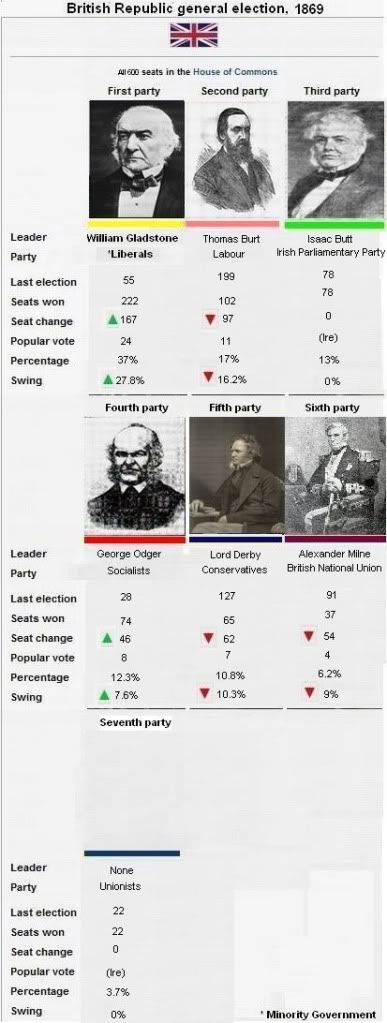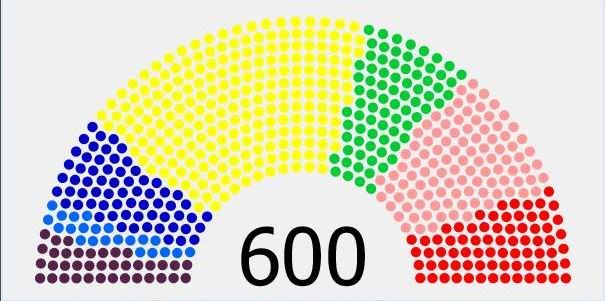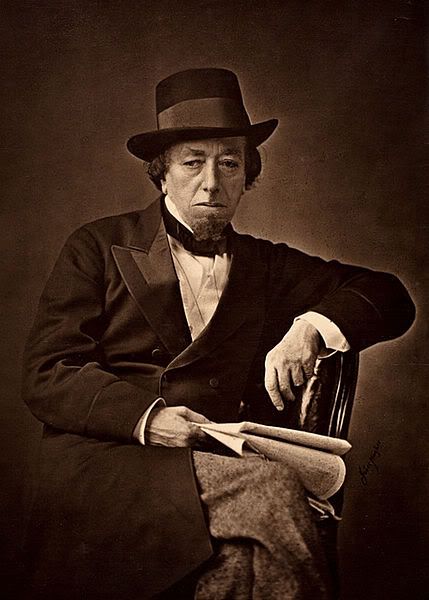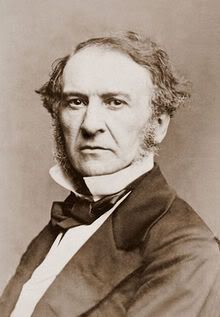The Election of 1869
The best sommation of what the campaign for the 1869 election centred around is as follows: Gladstone, Gladstone, Gladstone. Quite incredibly the leader of the then 5th largest party in Parliament totally dominated the campaign. As Labour blustered and attempted to recover from the loss of the Socialists and the right wing parties generally looked inept the Liberal leader travelled the length and breadth of the country unleashing the most well oiled electoral machine Britain had ever seen.

Liberal campaigning paid off in scarsely believable style. The Liberals quadrupled their Parliamentary presence – securing the largest swing in the history of the Republic as an additional 167 Liberals entered Parliament. The Liberal Party had won more seats in a single election than any party before (4 more than Labour had won in 1864) whilst they held the second largest Parliamentary presence in history (5 seats less than Labour had in the bried period between the absorbtion of the Progressive Liberals and the rebellion of the Socialists).
Elesewhere, it seemed to be disaster all round. Both Labour and the Tories lost half their seats (Labour losing more seats in a single election than any party before in Republican history). The BNU also suffered badly as it shed around 2/3s of its seats. All three parties had their smallest Parliamentary presence since the birth of the Republic.
The only parties other than the Liberals who had any sort of success were the IPP and the Socialist Party. The IPP won no additional seats but managed to stave off Unionist attempts to increase their presence, the party also became the 3rd largest in Parliament having spent the past two decades since the British and Irish Parliaments merged as the 4th party. The Socialists, meanwhile, had much more significant achievements. After Odger's rebellion with 28 MPs there had been a grave fear that the new Party would be unable to sway old Labour voters over. In the end they provided a strong fight against Labour across most of the country and came to dominate many of the heavily industrialised cities of Northern England, the Scottish Central Belt and even won a handful of London seats. Whilst failing to become the foremost party of the Left the Socialists could feel contented in becoming a major force in Parliament.
The most impressive thing about the Liberal triumph was the ability of the party to win seats from both Left and Right in equal measure. Combined the number of seats under Labour and the Socialists fell by 51 – just over 8% of the entire Parliament. Considering the difficulty faced by non-workers' parties in industrial areas this is a strong achievement and forced Labour out of many partially rural areas where it had been expanding since monopolising the urban vote. The rightwing parties saw an even more disasterous loss of 116 seats between them – some 19% of Parliament. These gains saw the Tories swept from rural Scotland (just one Tories MP remained in Scotland after the election), but more importantly the two parties were smashed in Middle England. Whilst the Left had sheltered itself from the worst of the Liberal gains in its industrial areas of base support the Right wing parties had lost much of their core vote to Gladstone. They would be forced to reacess their situations following this election.

The election had left the Liberals in a dominating position. With more than double the seats of their nearest rival (Labour) and warm relations with all but the most extreme parties there seemed to be no real need to form a coalition government. Gladstone therefore decided to form a minority government – relying on support from a mixture of Labour, IPP, Tory and Unionist MPs to keep Parliament functioning properly under its first Liberal government since 1851.
The new Prime Minister was quick to make calming statements to both the moderate Left and moderate Right. He promised not to interfere with the welfare structure established by Labour but refused to expand it, he promised not to be overzealous in foreign affairs but assured all that they would be ignored no longer, he made noises about cutting the bureacracy and taxes at the same at the same time but most crucially of all he called for a 'government of consencus' – essentially offering all parties a small say in government.
As ever in the aftermath of electoral disaster the leaders of the losing parties were quick to come under fire. For the BNU there was simply no alternative to Milne – the man totally dominated the party. However Labour's Burt instantly came under fierce assault which only intensified after the former leader George Harney was quoted as refusing to comment when asked if he thought Burt should stay on as leader (having previously backed him unquestioningly). However the main threat to Burt's leadership had been George Odger, and he had already left the party. Without a viable replacement an enraged Labour Party would just have to bear Burt's leadership – for now atleast.

Lord Derby of the Conservative Party would not be so lucky. Having come to power in the party after overthrowing long term leader Benjamin Disraeli for winning just 127 seats the loss of half of those MPs effectively sealed his fate. With Derby crushed at the polls Disraeli moved fast to swoop down upon the party and restore himself as the leader of the Tory Party. Upon hearing of the change of Tory leadership Gladstone wrote in his diary ''I feel that Mr Disraeli and myself shall get on heartily''.






